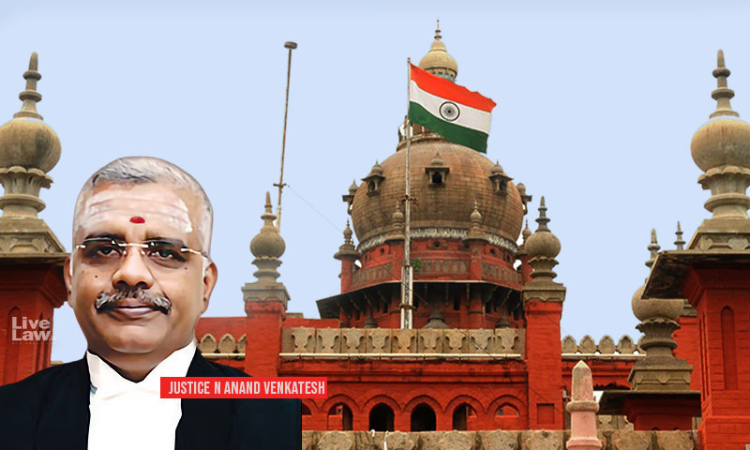- Home
- /
- High Courts
- /
- Madras High Court
- /
- Test Of Prejudice Irrelevant When...
Test Of Prejudice Irrelevant When Tribunal Is Constituted Without Consent Of JV Partner: Madras High Court Sets Aside Arbitral Award
Mohd Malik Chauhan
29 Oct 2025 6:45 PM IST
The Madras High Court set aside an arbitral award passed against M/s Nilakantan & Brothers Constructions Pvt. Ltd. (“the petitioner”) on the ground that since the arbitral tribunal was constituted without obtaining the consent of a Joint Venture Partner, it lacked jurisdiction. The court further held that the appointment cannot be validated merely on the ground that no...
The Madras High Court set aside an arbitral award passed against M/s Nilakantan & Brothers Constructions Pvt. Ltd. (“the petitioner”) on the ground that since the arbitral tribunal was constituted without obtaining the consent of a Joint Venture Partner, it lacked jurisdiction. The court further held that the appointment cannot be validated merely on the ground that no prejudice would be caused to a party.
Justice N. Anand Venkatesh held that “the Tribunal did not go into this issue and the Tribunal straight-away went into the issue of prejudice. The issue of prejudice will not really matter when it touches upon the very jurisdiction of the Tribunal to conduct the proceedings insofar as the petitioner is concerned. Whether the petitioner will be prejudiced or not becomes irrelevant, when the constitution of the Arbitral Tribunal was not done with the consent of the petitioner.”
Background:
The dispute originated from a joint venture (JV) between the petitioner and M/s Chokkaiyan Karthikeyan & Co. (“the second respondent”) formed for executing a contract awarded by the Chennai Port Trust (“the first respondent”) for construction of mooring dolphins and related works.
The parties entered into a Memorandum of Understanding (MoU) followed by a Joint Venture Agreement. The second respondent was designated as the lead partner under the Joint Venture and the petitioner was given responsibility for a specific portion of the construction work. The MoU provided that the lead partner must consult and keep the petitioner informed of all the correspondences and decisions related to the project.
Thereafter, the dispute arose between the Chennai Port Trust and the joint venture during the execution of the project. The contract was foreclosed and terminated by the Port Trust.
Following termination of the contract, the second respondent initiated arbitration proceedings. The Arbitral Tribunal was constituted without any consultation and participation of the petitioner. Later the petitioner was added as the second respondent only after the proceedings had started. On receiving notice, the petitioner entered an appearance and objected to the jurisdiction of the tribunal on the ground that it was constituted without its consent. However, the tribunal dismissed the objections stating that no prejudice to the petitioner would be caused. Aggrieved, the petitioner had filed a petition under section 34.
The petitioner submitted that the tribunal having been constituted without the petitioner's participation lacked jurisdiction to adjudicate the disputes. It was further submitted that the petitioner had no notice of the invocation of arbitration under section 21 nor consented to the appointment of the arbitrator under section 11(6) of the Arbitration Act. Lastly, it was submitted that the tribunal's reliance on prejudice could not cure the jurisdictional defect that goes to the root of the matter.
Per contra, the Respondent submitted that the petitioner was aware of the proceedings and had participated by filing objections, therefore the plea of lack of consent was untenable.
Findings:
The court observed that the tribunal was constituted solely on the basis of nominations by the first and second respondents without issuing any notice under section 21 and obtaining the petitioner's consent under section 11(6). It held that “the Tribunal cannot be thrust upon the petitioner, who never had an opportunity to consent for the formation of such a Tribunal. Insofar as the petitioner is concerned, the arbitration proceedings did not commence at all within the meaning of Section 21.”
The court further noted that the tribunal dismissed the objections on the ground that no prejudice would be caused without even considering them on merits. It held that ““the Tribunal did not go into this issue and the Tribunal straight-away went into the issue of prejudice. The issue of prejudice will not really matter when it touches upon the very jurisdiction of the Tribunal to conduct the proceedings insofar as the petitioner is concerned. Whether the petitioner will be prejudiced or not becomes irrelevant, when the constitution of the Arbitral Tribunal was not done with the consent of the petitioner.”
The court relied on Deep Industries where it was held that when the tribunal decides on the objections to its jurisdiction under section 16, no appeal lies against such determination and therefore such an order can be challenged under section 34 of the Act.
The court allowed the petition holding that the award insofar as the petitioner was concerned was non-est as it lacked jurisdiction.
Considering the long pendency of the dispute, the court appointed a fresh arbitrator with the consent of both the parties to adjudicate the dispute and directed him to complete the proceedings within six months.
Case Title: M/s Nilakantan & Brothers Constructions Pvt. Ltd. v. Board of Trustees of the Port of Chennai & Anr.
Citation: 2025 LiveLaw (Mad) 385
Case Number: O.P. No. 309 of 2018
Judgment Date: 23/10/2025
For Petitioner : Mr.K.Harishankar and Ms.Mithreyi Kasthurirangan and Mr.R.Pranav
For Respondents: Mr.R.Karthikeyan for R1 Mr.G.Ashokapathy for M/s.Pass Associates for R2



